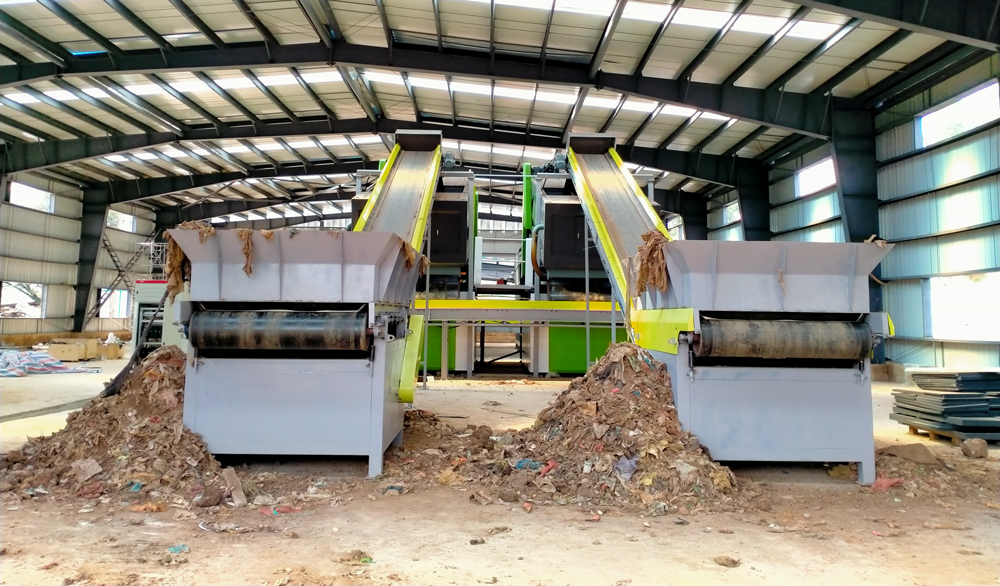 Time:2024-11-06
Time:2024-11-06
 Source:青绿环境
Source:青绿环境
Waste sorting equipment is an essential component of modern waste management systems, used to automatically or semi-automatically separate mixed waste into different categories, thereby increasing resource recycling rates and reducing environmental pollution. As global environmental awareness increases, waste sorting has gradually become a focus of attention for governments and all sectors of society worldwide, and efficient, accurate waste sorting equipment has become a key tool to achieve this goal.

Main Types of Waste Sorting Equipment
Mechanical sorting equipment: Utilizes physical principles (such as gravity, magnetism, screening, etc.) for preliminary classification of waste. For example, vibrating screens can be used to separate larger waste items; magnetic separators can pick out metallic materials.
Optical sorting equipment: Employs optical sensor technology to identify different materials of waste and separate them through air flow or other methods. This type of equipment is particularly suitable for the precise classification of lightweight materials such as plastics and paper.
Biological sorting equipment: Specifically designed for organic waste, it achieves the separation of organic matter from other substances through the action of microorganisms. Common examples include composting facilities and anaerobic digestion tanks.
Intelligent sorting systems: Combine advanced technologies such as machine vision and artificial intelligence algorithms to more accurately identify and classify a wide variety of waste types. Intelligent sorting systems can significantly improve sorting efficiency and accuracy while reducing labor costs.
Application Scenarios for Waste Sorting Equipment
Urban waste treatment plants: Responsible for handling everyday waste generated from households and commercial establishments.
Industrial waste disposal centers: Focus on handling specific types of waste generated by industries such as manufacturing and construction.
E-waste recycling stations: Specialized in collecting and processing discarded electronic products, extracting valuable metals and other recyclable resources.
With technological advancements and increasing societal demands for environmental protection, future waste sorting equipment will move towards more intelligent and automated directions. On one hand, by introducing more AI technology, the recognition capabilities and work efficiency of the equipment will be enhanced. On the other hand, integration with other environmental protection technologies will be strengthened, such as combining with biomass energy conversion technologies to transform organic waste into clean energy, achieving the maximum utilization of resources.
In summary, waste sorting equipment plays a significant role in promoting a circular economy and protecting the ecological environment. Its technological innovation and development are of great importance for building a sustainable society.













 Prev
Prev











